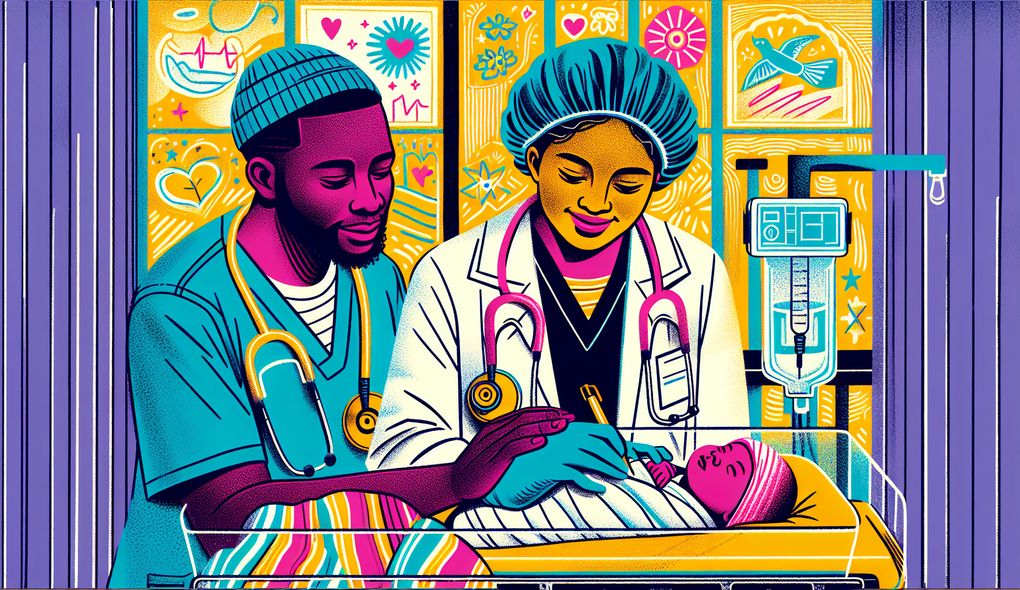Can you provide an example of a time when you had to adapt to unexpected changes in patient circumstances or treatment plans?
JUNIOR LEVEL

Sample answer to the question:
One example of a time when I had to adapt to unexpected changes in patient circumstances was when I was working in a perinatal care unit. I was assigned to a patient who was experiencing a high-risk pregnancy due to gestational diabetes. We had developed a detailed care plan for her, which included regular monitoring of her blood sugar levels and adjustments to her diet and medication. However, one day, her condition suddenly worsened, and her blood sugar levels became unmanageable despite our interventions. We had to quickly adapt our treatment plan and consult with a team of specialists to provide the best possible care for her and her baby. We adjusted her medication dosages and closely monitored her blood sugar levels throughout the day. It was challenging to make these rapid changes, but we were able to stabilize her condition and prevent any further complications.
Here is a more solid answer:
I encountered a situation during my time as a perinatal nurse practitioner where I had to adapt to unexpected changes in a patient's treatment plan. The patient was admitted with preterm labor at just 32 weeks gestation. Initially, the plan was to monitor the patient closely and administer medications to delay delivery. However, the patient's condition rapidly deteriorated, and it became clear that immediate delivery was necessary to prevent harm to both the mother and the baby. I had to quickly make the decision to change the treatment plan and prepare for an emergency cesarean section. I collaborated with the obstetrician, anesthesiologist, and neonatal team to ensure a smooth transition to the operating room. Despite the challenges, we were able to safely deliver the baby and provide the necessary care in the neonatal intensive care unit. This experience required swift clinical judgment, effective communication, and the ability to work well under pressure.
Why is this a more solid answer?
The solid answer provides a more comprehensive example of a time when the candidate had to adapt to unexpected changes in patient circumstances. It includes specific details of the situation, the candidate's actions, and the outcome. The candidate also highlights their clinical judgment, communication skills, and ability to work under pressure. However, the answer could still be improved by further emphasizing the candidate's knowledge of current best practices in perinatal care and their ability to collaborate with multidisciplinary healthcare teams.
An example of a exceptional answer:
During my time as a perinatal nurse practitioner, I encountered a unique case that required me to adapt to unexpected changes in patient circumstances and treatment plans. I was caring for a pregnant patient who had been diagnosed with a rare condition called placenta previa, where the placenta partially or completely covers the cervix. We had developed a comprehensive care plan for her, which included close monitoring of her condition and scheduled cesarean section delivery. However, during one of her routine ultrasound examinations, we discovered that her placenta had migrated and was no longer covering the cervix. This unexpected change meant that a vaginal delivery could be a possibility for her. I immediately consulted with the obstetrician, a perinatalogist, and the patient to discuss the new options and implications of a vaginal delivery. We took into consideration the patient's preference and medical history to make an informed decision. We updated the treatment plan and provided the patient with appropriate education and support. In the end, she successfully delivered vaginally with minimal complications. This experience showcased my ability to adapt quickly to changing circumstances, make informed decisions, and collaborate effectively with a multidisciplinary team. It also highlighted my knowledge of current best practices in perinatal care.
Why is this an exceptional answer?
The exceptional answer provides a highly detailed and specific example of a time when the candidate had to adapt to unexpected changes in patient circumstances. The candidate describes a complex case involving a rare condition and emphasizes their ability to make informed decisions and collaborate with a multidisciplinary team. The answer also showcases the candidate's knowledge of current best practices in perinatal care. The candidate could further improve the answer by adding more details about their empathetic and patient-centered approach to care.
How to prepare for this question:
- Familiarize yourself with common unexpected changes in patient circumstances or treatment plans in perinatal care, such as preterm labor, fetal distress, and placenta previa.
- Reflect on your past experiences and think of specific examples where you had to adapt to unexpected changes. Consider the actions you took and the outcomes of those situations.
- Review the current best practices in perinatal care to ensure you are up-to-date with the latest guidelines and recommendations.
- Practice discussing your adaptability, clinical judgment, collaboration skills, and patient-centered approach. Use specific examples to illustrate your skills.
- Consider the importance of effective communication and teamwork in adapting to unexpected changes in patient circumstances. Think about how you have effectively collaborated with other healthcare professionals in the past.
- Prepare to discuss how you stay calm under pressure and make quick decisions to ensure the best possible outcome for your patients.
What are interviewers evaluating with this question?
- Ability to work effectively in a fast-paced, high-stress environment
- Strong clinical judgment and decision-making capabilities
- Empathetic and patient-centered approach to care
- Knowledge of current best practices in perinatal care
- Teamwork skills and the ability to collaborate with multidisciplinary healthcare teams

